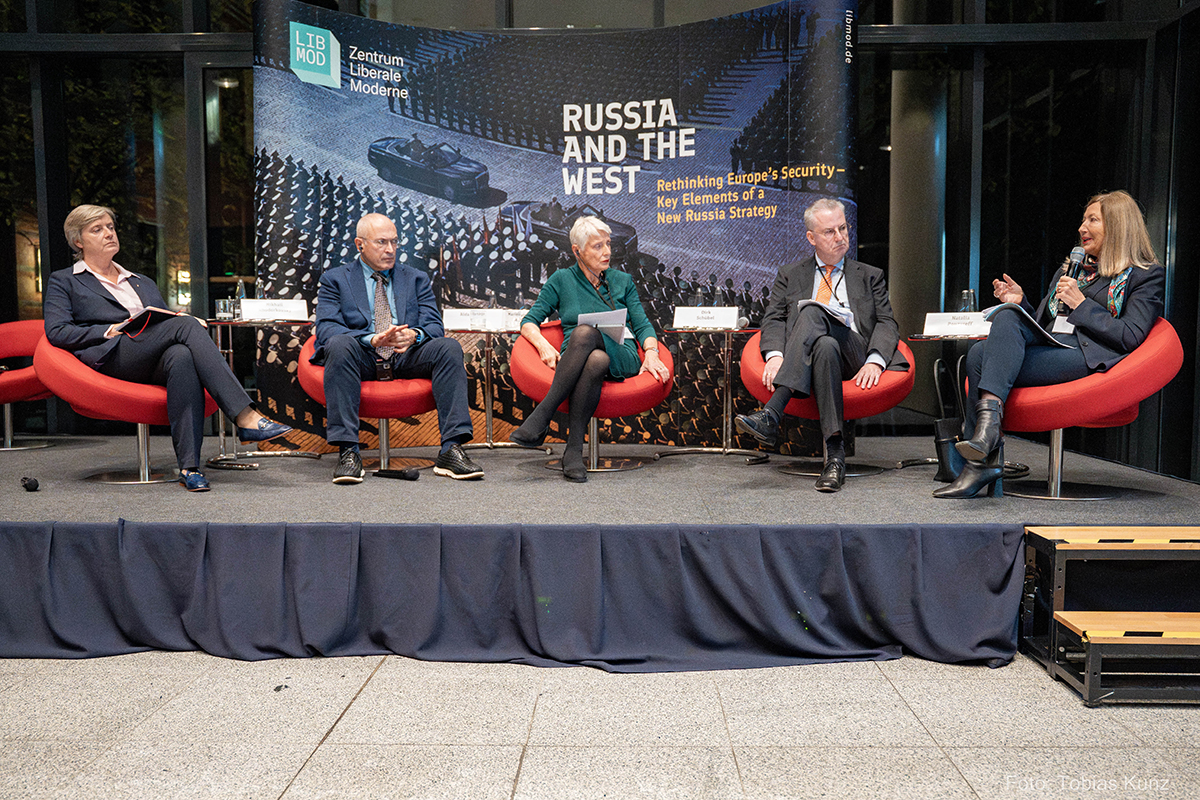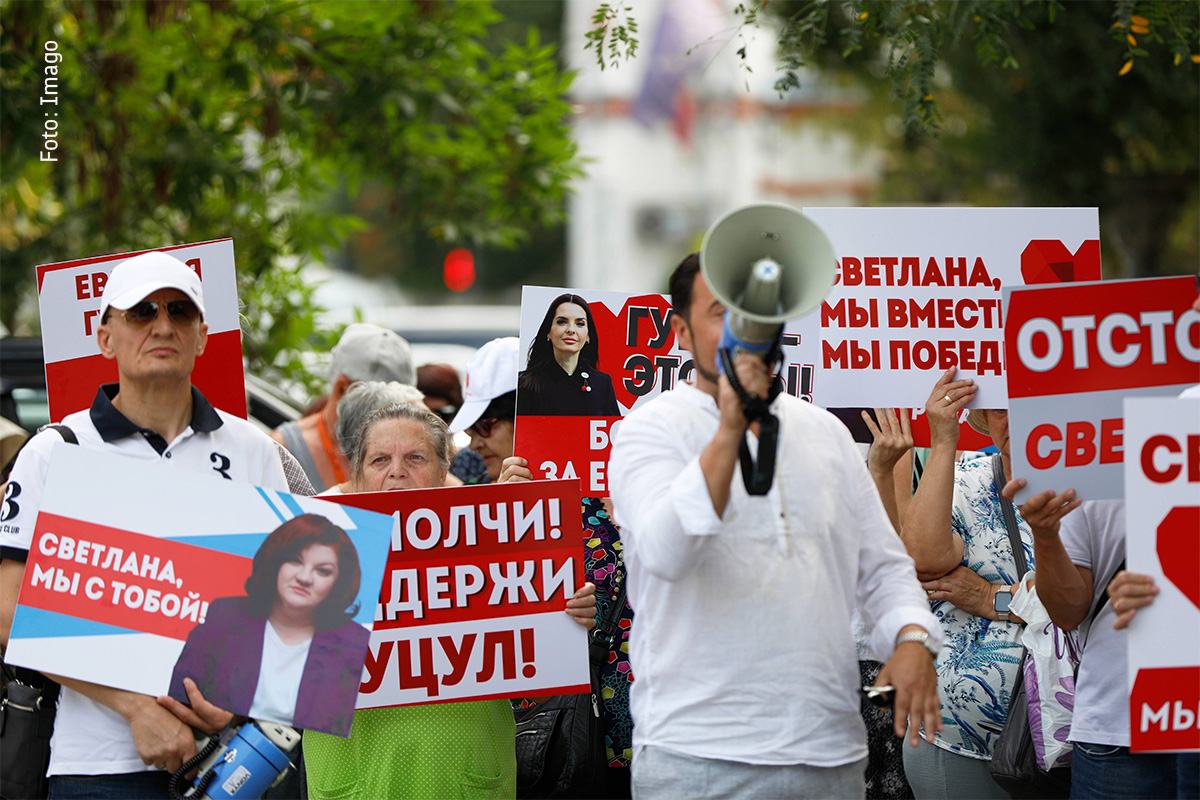Why Germany should support Ukraine’s EU candidacy

The granting of candidate status does not mean accession: it is above all a recognition of the progress Ukraine has made in reforms and a great symbolic gesture to a people who are protecting Europe from invasion.
There are two fronts in Ukraine – the external military front and the internal reformist front. And both are extremely important. Because to successfully counter the external threat, you need to have a strong economy and strong institutions, the absence of corruption, and the rule of law. To this end, Ukraine must complete the reforms it launched in 2014, following the Revolution of Dignity and the signing of the Association Agreement with the EU.
Ukraine has already made considerable progress against corruption, within an independent National Anti-Corruption Bureau and a Specialized Anti-Corruption Prosecutor’s Office. The Anti-Corruption Court has already handed down dozens of verdicts in cases of high-level corruption, and dozens of corrupt MPs, senior officials and judges are now serving time behind bars. Open registers and e‑declarations have made it virtually impossible to conceal illicit benefits. ProZorro’s e‑procurement system has already saved the state budget billions, and this experience is being studied and adopted by other countries.
Immediately before the war, we had a judicial breakthrough – almost the entire High Council of Justice, the most important and most problematic body in the judiciary, resigned because it did not want to pass the integrity test provided by the recently adopted law. Now, despite the war, the independent Ethics Council has continued to elect the new leaders of the Ukrainian judiciary. The significance of this reform for the country’s transformation is extraordinary. It was even directly criticised by Putin in his speech before the February attack as an example of how “wrong” Ukraine is and how much it has broken away from the “Russian world” into which he is trying to force us all back.
But this could hardly have been achieved without one important process – visa liberalization with the EU in 2014–2015. What does it have to do with the reforms process? It’s quite simple: the vast majority of the anti-corruption reforms were conditions of the EU-Ukraine visa liberalization action plan. For political reasons, then-President Petro Poroshenko was very keen on visa-free travel with the EU, and his government, which was not always very fond of reforms, had no choice but to meet all the 140+ requirements in the document for the establishment of these institutions in Ukraine.
Undoubtedly, President Zelensky and many people in his government, as well as millions of other Ukrainians, are military heroes. But it is no secret that there are still forces in Ukraine that do not want change. They use war as an excuse to change nothing at present. And then they will use the victory as if it were evidence that everything is fine anyway. As a result, Ukraine risks remaining a “lost opportunity” for decades, with the West gaining a permanent source of instability on its border during this period.
Instead, while the window of opportunity for change is open it is critical that government and civil society reformers, who have already achieved some fundamental changes, receive a powerful instrument for Ukraine’s eventual transformation into a European country in every sense.
And this instrument is the status of a candidate for EU membership, which Ukraine can obtain in June at the EU summit. All formal obstacles in the way of this have been removed. Ukraine has already submitted thousands of pages of documents in record time, despite the war. All that is needed now is a political decision from the governments of the Member States, most of all Germany.
It is important to note that candidate status for Ukraine does not guarantee its automatic membership in the EU. But it will acknowledge the progress that Ukraine has already made in reforms within the framework of the Association Agreement – a highly symbolic gesture to the Ukrainian people, who are now protecting Europe from invasion. Above all, it is a precondition for accession negotiations, a long-term process of meticulous work on reforms that will give Ukraine the rule of law, and the EU a large, trustworthy partner in business and security.
Unfortunately, there are still some sceptics among EU governments who do not want to see Ukraine as a candidate, either because of a lack of understanding or empty dreams of new gas projects with Putin. At the same time, the support of the EU population for Ukraine and its integration processes is overwhelming. In Germany, 79% feel sympathy for Ukrainians, 71% see Ukraine as part of the European family, and 61% think Ukraine should join the EU when it is ready. And the candidacy status linked to the accession negotiations is a perfect instrument to get Ukraine ready for further integration.
The support rates in Ukraine for integration with the EU are also at an all-time high of 91%.
It would be catastrophic to waste such an opportunity now while at the same time signalling to Ukrainians that despite the huge sacrifices that they are making in defending European values, not only is no one in Europe waiting for Ukraine, but they do not even want to start talking with it.
A historic choice lies in the hands of the German government and other EU leaders, affecting not only Ukraine, but the whole of Europe and the whole civilized world. It is vitally important now to show true, unerring leadership.
Mikhailo Zhernakov is the director of the DeJuRe Foundation, an organization promoting the rule of law in Ukraine.
![]()
Did you like thike this article? If yes, you can support the independent editorial work and journalism of LibMod via a simple donation tool.
Donate via PayPal
![]()
We are recognized as a non-profit organization, accordingly donations are tax deductible. For a donation receipt (necessary for an amount over 200 EUR), please send your address data to finanzen@libmod.de
Related topics
Newsletter bestellen
Stay tuned with our regular newsletter about all our relevant subjects.





